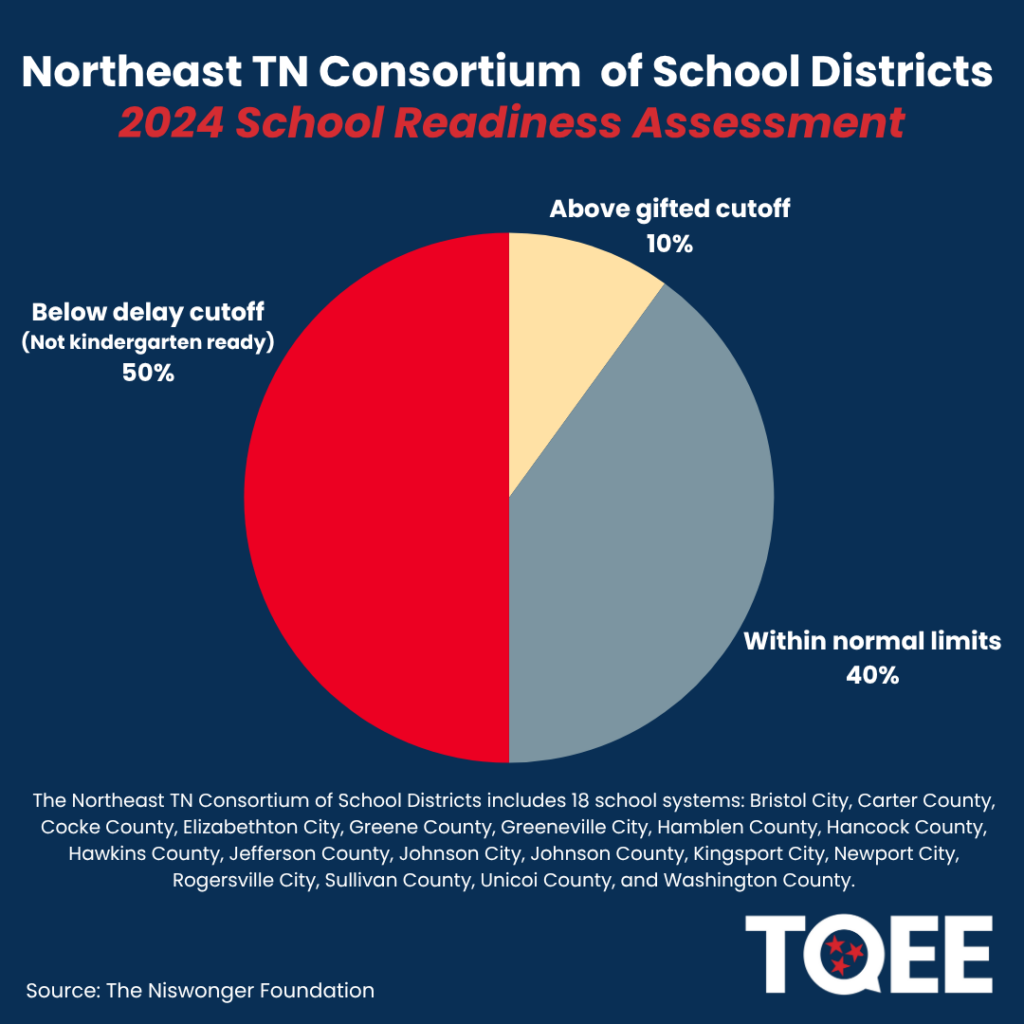2024 Legislative Wrap Up
Each year from January through April or May when the Tennessee General Assembly holds its legislative session TQEE advocates for a set of legislative and budget proposals that would have a meaningful impact on one or more of the priorities outlined in our Policy Blueprint.
This year, we supported a number of bills and budget proposals — you can check out the legislative priorities here.
On Thursday, April 25, the 113th Tennessee General Assembly adjourned and our representatives and senators have headed home, many to begin their re-election campaigns. Below are the highlights of budget items and legislation we supported.
Starting with the Governor’s proposed budget, we applaud the approval by the General Assembly of substantive new investments in child care, learning, health and mental health:
- Increased TISA by $261 million. This investment added funding to the Tennessee Investment in Student Achievement (TISA) public school funding formula. This includes additional investments in teacher salaries toward the state’s commitment to bring public school teacher salaries to a minimum base of $50,000 by 2026.
- Childcare improvement fund. $15 million was included as expected for the “Childcare Improvement Fund”. This represents the second of three payments towards a $45 million program established last year. These funds are administered through the Department of Human Services as grants to nonprofits to creatively address the state’s childcare crisis.
- New school-based behavioral health liaisons.This investment of $8 million will add 114 additional school-based behavioral health counselors. Currently there are 274 counselors who cover about 330 of the ~1900 public schools in Tennessee. The new additions would help continue moving Tennessee the right direction toward the recommended ratio of 1 counselor for every 250 students per the American School Counselor Association.
- Numerous investments in child health and mental health through TennCare savings. We’re still unpacking the specifics but were glad to see upon first review line items such as children and youth crisis stabilization, infant and early childhood mental health training for providers, and strategies for growing the mental and behavioral health workforce.
Highlights of other legislative priorities
The Tennessee General Assembly filed 1658 total bills, with 271 making it to the Governor’s desk for signing into law. There are a few we’re celebrating.
Promising Futures early learning scholarship program SB750/HB785 (Massey/White). This bill passed through all education committees and received a postiive recommendation from Government Operations Committee, but ultimately was not funded. The legisation would have created a new early learning scholarship program to make quality child care and preschool more affordable for working families. The good news is, thanks to our advocates making your voices heard, many legislators learned much about the issue and endorsed investing in high quality early care and education.
The bill was in part a response to the TN Child Care Taskforce which concluded in December 2022, having identified challenges of affordability, quality and access as key barriers to families securing early care and education that meets their needs. The bill targeted sports wagering revenues as the funding source, and a decision was made by Finance leadership to hold off on any efforts to tap that revenue stream for new purposes for at least another year.
Child care studies by TACIR
Two bills that will study the challenges and solutions for addressing aspects of the child care crisis were successfully enacted and funded. Studies can be valuable in helping legislators better understand the issues and have more confidence in proposing solutions. Both bills tapped the Tennessee Advisory Commission on Intergovernmental Relations (TACIR) to do the analysis.
- Child care regulatory barriers study. SB2374/HB2317 (Watson/Williams). Requires TACIR to conduct a study to Identify laws, regulations, and rules that impose costs, financial burdens, or operating delays on child care business owners or prospective owners but which are not necessary for the health, safety, and welfare of children. The study will focus on both local and state regulations and will make recommendations to address them.
- Study assessing child care workforce. SB2063/HB2232 (Oliver/Powell). Requires TACIR to conduct a study of the current landscape of child care workers in Tennessee; the establishment, feasibility, and impact of implementing a program that covers the cost of child care for specific child care employees; the feasibility and impact of expanding financial support for early educators, including a target compensation scale; and, whether the public benefit program income eligibility requirements create a benefits cliff
We plan to watch and engage where possible in the TACIR studies, and expect they will point to opportunities for improving childcare through legislation in 2025.
Enhanced health screenings for infants to ensure best opportunity for life-saving treatment for rare conditions SB1791/HB1973 (Massey/Hawk).
This bill, which was signed into law in a somewhat amended form, supports TN’s position at the forefront of newborn screening. It requires the Department of Health (DOH), when a screening for a condition is added to the Recommended Uniform Screening Panel (RUSP), but is not implemented by DOH within 36 months, to provide a report on the status and the reason for delay to the Tennessee General Assembly and key state genetics and rare disease advisory committees.
What’s ahead
As we look toward January 2025 when the Tennessee General Assembly reconvenes, together we’ll continue to fight for state policies and investments that better ensure all children have the strong foundation they need for a bright future.





